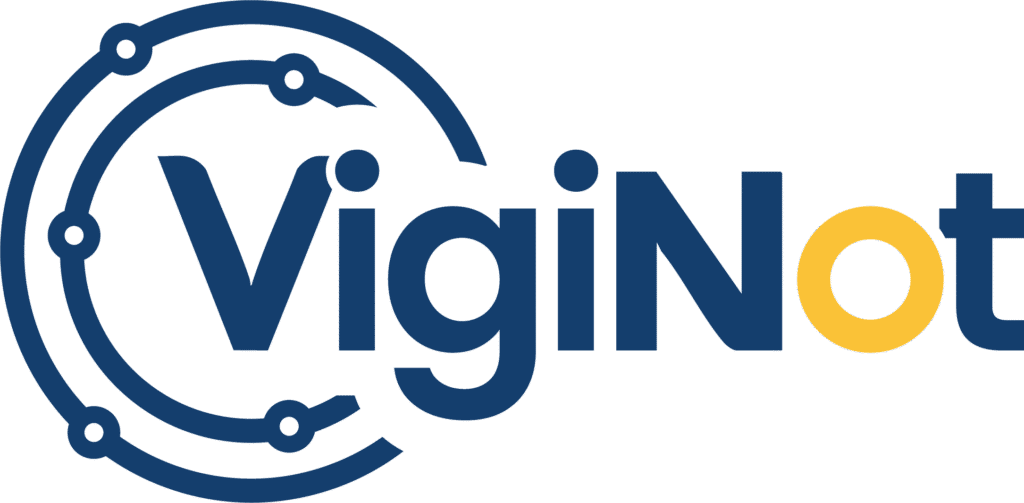SUMMARY:
- What is estate planning?
- Defining estate planning :
- The importance of planning for heritage preservation.
- 3 key elements of asset planning.
- The will: a crucial tool for planning the distribution of assets.
- The role of trusts in safeguarding your assets
- Life insurance: an essential component of estate planning.
- Choosing the right estate planning strategies.
- Assessing your net worth.
- Tax planning: minimizing inheritance tax.
- Donations and gifts: a strategy to reduce the size of your estate.
- The role of professionals in estate management and preparation.
- Why work with an estate planner?
- What is the role of an estate lawyer?
- How can an accountant help manage the transfer of assets?
- The notary, your best ally in estate planning.
- How can you ensure the long-term future of your assets?
- The role of estate planning in preserving family wealth.
- Final thoughts on legacy planning and sustainability.
Estate planning is a crucial step in wealth managementwhich requires considerable attention and the assistance of a professional such as a notary.
It encompasses various aspects such as willthe donationprimary residence, the real estate and the business transfer.
What is estate planning?
Estate planning involves tackling challenges such as lower tax ratethe inheritance tax management or liquidation.
💎 Le family patrimony is precious, and its management requires careful forecasting in order to to ensure continuity.
Defining estate planning :
📝 Estate planning is the process by which a person organizes the transfer of his estate to his heirs or legatees.
This usually involves document preparation such as wills and inheritance agreements.
👉 The aim is toensure fair distribution of assetsavoid conflicts between co-inheritors, minimize inheritance tax, and preserve net estate assets.
Tools such as thelife insurance, l'tax optimizationthe donation-partage and the property stripping can be used to achieve these objectives. Not only does this enable the estate to be managed smoothly, it can also be used for estate debts.
The importance of planning for heritage preservation.
Estate planning makes a major contribution to heritage preservationThis ensures that beneficiaries of life insurance and other distributions receive their share in a fair and efficient manner.
✅ It provides for the protection of the spouse, ensuring his or her rights and share, and also clarifies the situation of property in joint inheritance, making it easier to declare the estate. Finally, it can also form part of a marriage contract, ensuring peace of mind for all parties concerned.
⚠️ Without proper planning, heirs can be faced with a heavy burden. inheritance tax and potential loss of asset value.
3 key elements of asset planning.
Estate planning is a complex subject that encompasses many aspects, such as wills, estate planning, estate planning, estate planning, estate planning, estate planning, estate planning, estate planning, estate planning, estate planning, estate planning, estate planning, estate planning. trusteesestate planning, real estate, inheritance tax and life insurance. It's an essential step in ensuring the continuity and preservation of your family assets.
⚠️ Elle requires a good understanding of legal and tax principles which govern inheritance and gifts, and often require the intervention of a notary.
✅ It also makes it possible tooptimize your asset management by minimizing inheritance taxes and ensuring that your wishes are respected after your death.
1. The will: a crucial tool for planning the distribution of assets.
A will is a crucial document in estate planning. It allows control how your assets are divided after your deathto include shared gifts and designate reserved heirs if necessary.
⚠️ Without a will, the law will decide what happens to your estate. It is therefore essential to call on the services of a notary to draw up a will that respects the rules of inheritance tax and your wishes.
Note that a holographic willalthough more difficult to prove in court, may also be an option to consider. ✅
Download your free holograph will!
2. The role of trusts in safeguarding your assets
The trusts or trusts are complex financial tools, but very useful for estate planning. Among other things, they enable you to protect your assets from inheritance debts and offer a degree of flexibility in the distribution of the estate.
They can be particularly useful for the management of real estate assets or large fortunes, or for special situations such as a international succession.
✅ A notary or wealth management advisor can help you to understand the advantages and disadvantages of these structures and determine whether they are suitable for your needs.
3. Life insurance: an essential component of estate planning.
L'life insurance is one of the most common means used to succession planning. It can be used to protect the surviving spouse and/or to transfer assets at a lower tax cost.
⚠️ The choice of beneficiary (or beneficiaries) is crucial, as it may have an impact on taxation and the division of your estate. Consider incorporating a beneficiary clause well-written.
What's more, depending on your contract, you can opt for different exit options (capital, life annuity, etc.). A good knowledge of tax optimization rules is therefore essential when taking out a life insurance policy.
Choosing the right estate planning strategies.
Careful estate planning is one of the fundamental keys to ensuring the continuity of your estate. There are many aspects to this, including wills, business transfers, donations, marriage contracts and other arrangements.
✅ One asset management is a well-executed way of ensuring that your real estate, finances, debts and other family assets are wisely managed and distributed in accordance with your wishes after your death.
Assessing your net worth.
It is essential to start with assess the net value of your assets. This includes taking into account all your assets such as your principal residence, any rental property, net estate assets, investments (such as life insurance) and even less tangible items such as a life annuity.
⚠️ The valuation must also take into accountincluding estate debts.
Once this assessment has been made, you can consider several strategies for tax optimization, minimizing inheritance taxes.
Minimizing inheritance taxes through tax planning.
Keeping your assets in good condition often requires the use of tricks to reduce the tax rate. This tax planning involves the use of a number of legal instruments that make it possible toreduce inheritance tax.
👉 For example beneficiary clauses in a life insurance contract can help you distribute part of your estate outside the scope of the succession.
👉 Other strategies include donation to childrenwhich can help spread the tax burden over several years, or the usufruct and bare ownership dismembermentwhich can allow you to spread the tax burden among several heirs.
Donations and gifts: a strategy to reduce the size of your estate.
Another estate planning strategy to consider is gifting. In some cases, you can reduce the total amount of your estate by giving legacy to relatives or charities. 🫶
- donation-partageThis means that your co-heirs know in advance what their future share of the inheritance will be, in complete transparency. At the same time, it allows you to maintain control over your assets during your lifetime.
⚠️ It is imperative to note that the majority of donations require a declaration to a notary to be recorded in an inheritance agreement in preparation for the liquidation of the estate.
Make sure you always consult an expert before implementing these strategies, to best protect your interests and those of your beneficiaries.
The role of professionals in estate management and preparation.
Collaboration with qualified professionals such as notariess, the accountants and the lawyers can be invaluable in avoiding any confusion or disputes during the process.
These experts can help you choosing the best strategies to protect your family assets and guarantee the rights of your heirs. ✅
Why work with an estate planner?
A estate planner plays a key role in the effective implementation of a succession plan. This professional has in-depth knowledge of inheritance law, taxation and asset management.
He can help you to determine the optimal distribution of your assets, to forecast tax rates and make the best choice between life insurance, bequests or shared gifts.
In addition to the drafting wills and beneficiary clauses, he can work with you to draw up an inheritance agreement or a tontine contract.
What is the role of an estate lawyer?
A estate lawyer is another indispensable estate planning professional. He can help you structure your assets in such a way as to minimize taxes and to maximize your co-heirs' inheritance.
In addition, the lawyer can advise you on specific issues such as property dismemberment, the creation of a Family SCIbusiness transfer or drawing up a holograph will.
It can also help you to solve joint ownership problems or navigate through an international estate.
Download your free holograph will!
How can an accountant help manage the transfer of assets?
An accountant's involvement in estate planning can also be invaluable for optimize your tax situation.
Thanks to his in-depth knowledge of tax laws, he can help you to understanding the tax implications share, usufruct, bare ownership and other estate strategies.
He can help you inheritance declaration and liquidation. In addition, the accountant can advise you on the tax aspects of gifts to children, life annuities, gifts between spouses and the protection for the surviving spouse.
The notary, your best ally in estate planning.
Estate planning is a vital process for ensuring the continuity of your family's wealth. It involves everything from your will to the inheritance and succession of your real estate and other assets.
✅ A good estate plan, designed with the help of a notary, can help you avoid a high estate tax rate.
What's more, it allows you to minimize potential conflicts between co-heirs and ensure an orderly distribution of your estate.
How can you ensure the long-term future of your assets?
To ensure the long-term future of your assetsYou can opt for a life insurance policy with a strictly defined beneficiary clause, a shared donation or the creation of a SCI Familiale.
All these options, if correctly selected and used, can help you to optimize the transfer of your assets.
The role of estate planning in preserving family wealth.
Proper estate planning not only helps protecting family assetsBut it also provides a framework for the judicious transfer of your assets at the right time.
👉 Be aware that a property dismemberment strategy, which separates usufruct from bare ownership, can guarantee lower inheritance taxes.
It is also vital to take into account the protection of the surviving spouse, thanks in particular to the donation between spouses or the precise drafting of a marriage contract.
Final thoughts on legacy planning and sustainability.
In short, the importance of planning your succession cannot be underestimated.
⚠️ Without such an organization, there's a risk of conflicting inheritance rightsand potentially high inheritance costs and a possible disorganization of inheritance distribution.
Please note that it is necessary to adapt asset management to changes in the family and financial situation. The involvement of a notary in advice and tax optimization can bring great added value. 💎
In addition, a digital willregularly updated, offers the guarantee that the testator's last wishes will be respected.
In this way, estate planning ensures a smooth transition of wealth to heirs and contributes to the continuity of family assets. ✅






